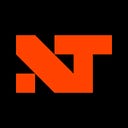Why Trade Nasdaq Futures vs FAANG Stocks?
FAANG is an acronym referring to the five leading companies traded on the Nasdaq stock market — Facebook, Amazon, Apple, Netflix and Google. Originally coined in 2013 by Jim Cramer of CNBC’s Mad Money as “FANG,” the second ‘A’ for Apple was added in 2017.
According to Tim McCourt, CME Group’s Managing Director of Equity Products, “People are very familiar with the FAANG names, and they’re very ingrained in the U.S. market. These companies are innovating in the technology space, and there’s a very different reaction when they report news. They tend to see outsized trading and reactions.”
In fact, a major fundamental driver for the FAANG 5 is considered to be name recognition alone.
These five household names have become dominant in their respective markets over the past decade, and the FAANG trade is commonly referenced by tech speculators. However, with five expensive stocks to track and trade, is there a more accessible way to capture these innovative companies’ performance and volatility?
Do Nasdaq Futures Provide a Simpler Way to Trade FAANG?
E-mini and Micro E-mini Nasdaq 100 futures (futures symbols NQ and MNQ respectively) offer two versatile and relatively low-cost alternatives to the FAANG trade. Each offers traders exposure to the 100 leading non-financial US large-cap companies traded on the Nasdaq exchange which compose the Nasdaq 100 index. Due to inherent leverage in futures markets, traders can realize significant capital efficiencies as compared to trading individual stocks.
Additionally, stock trades made on margin can be subject to broker interest charges. Nasdaq futures do not incur such charges.
Why Trade NQ & MNQ vs FAANG?
- Less Capital Required: With a significantly lower financial commitment required, Nasdaq futures offer a unique opportunity for technology speculators. As required by the Pattern Day Trader (PDT) rule, stock traders using margin must maintain a balance of $25,000 to actively day trade. On the other hand, you can open a futures account with only $400 through NinjaTrader Brokerage.
- Capital Efficiencies: Capital is the most important resource for traders and the less you have to use, the better. Nasdaq futures provide significantly more buying power than stocks enabling you to control a large contract value with a small amount of capital.
- Interest & Transactional Volume: High liquidity is the norm in Nasdaq futures markets, making it easier for traders to execute a trade quickly and at a desired price. This allows futures traders to focus on timing their entries and exits rather than wondering if there will be sufficient volume to trade.
- Round the Clock Trading: E-mini Nasdaq futures traders take part in the action nearly 24 hours a day, 6 days a week. Futures traders can manage positions any time of day and take advantage of market events such as earnings releases and economic announcements.
- 60/40 Tax Treatment: A substantial benefit of futures trading, gains and losses from Nasdaq futures trades are taxed at the 60/40 rule, meaning futures traders can retain more than 5% of profits than stock traders when tax time comes.
- Diversification: With the underlying Nasdaq 100 index being a basket of 100 names, NQ & MNQ futures provide you with FAANG’s exposure as well as the 95 other components in the index. This gives you a broader-based portfolio in the event of a decline in FAANG stocks.
Get Started with NinjaTrader
NinjaTrader supports more than 500,000 traders worldwide with a powerful and user-friendly trading platform, deep discount commissions and world-class support. NinjaTrader is always free to use for advanced charting, strategy backtesting and an immersive sim trading experience.
Download NinjaTrader’s award-winning trading platform and get started with a free trading demo with real-time market data today!
